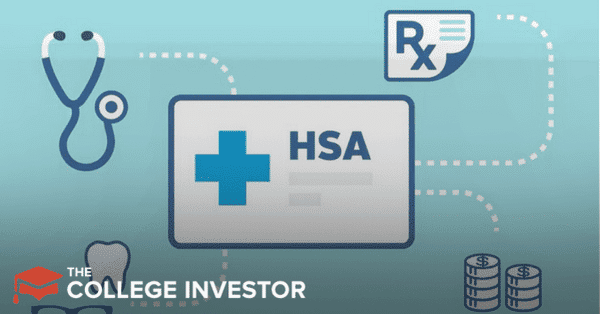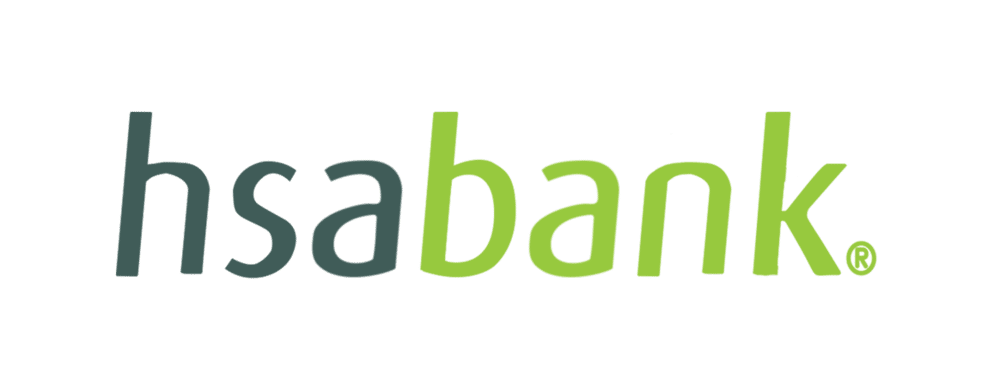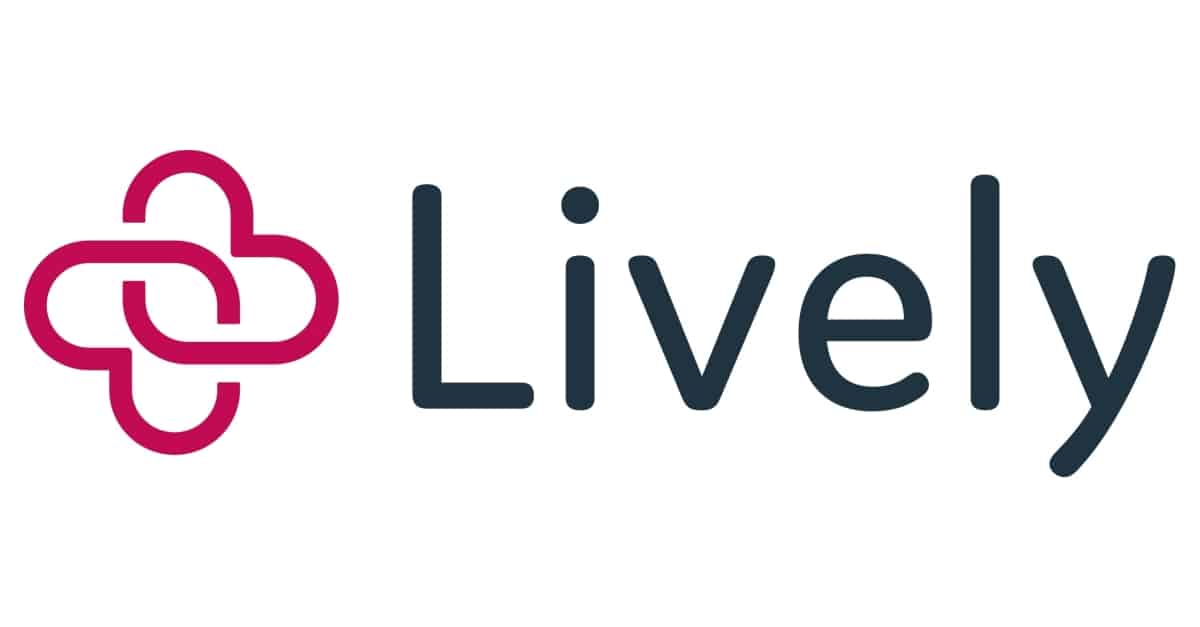
HSAs offer more than just tax advantages for medical expenses. You can also invest any idle cash into various investments for a potentially higher return.
For 2024, HSA contribution limits for family HSAs are $8,300, while for individuals they are $4,150. And don't forget you can still make your 2023 contribution until the tax deadline of April 15. HSA savings are generally FDIC-insured. However, investments generally are not. Verify with the HSA plan you’re considering.
You’ll also need to have a high-deductible health plan to qualify for an HSA. There can be other restrictions but your HSA provider can help with details on eligibility.
Note that most employers will cover the HSA monthly fee. But if you are choosing an HSA that is different from the one offered with your employer health plan, you’ll likely need to cover any monthly fee. Or, if you've left your employer and are looking for a good option to move your HSA too - check out this list.
Keep in mind that most HSA plans do not allow you to participate in multiple HSA plans.
In this article, we’ll provide a summary of several attractive HSA plans that also offer investment options. Remember, we love using our HSA as an IRA - and think you should too. Check out these companies for the best places to invest your HSA money.
Note: The account offers that appear on this site are from companies from which The College Investor receives compensation. This compensation may impact how and where products appear on this site (including, for example, the order in which they appear). The College Investor does not include all HSA providers or all HSA offers available in the marketplace.
1. Fidelity HSA®
The Fidelity HSA® (Health Savings Account) is a brokerage account that gives you flexibility with your health savings dollars.
The account has no monthly account fees and no minimum balance required to open the account.
Fidelity offers a wide range of investments , including stocks and bonds, mutual funds, and ETFs all commission-free¹. You can also invest in fractional shares.
You can easily add funds to your Health Savings Account by transferring from a bank account, or mobile check deposit. And if you're looking to use your HSA for qualifying expenses, you can use the Fidelity HSA debit card or Fidelity BillPay.
Read our full Fidelity review here.
2. Lively
Lively offers an FDIC-insured HSA account with the following features:
- Free health savings account for individuals. No hidden fees.
- FDIC insured.
- 100% paperless.
- Invest for FREE
The drawback to Lively versus Fidelity is that if you want to invest, you must maintain an account at Charles Schwab as well as an account at Lively. It's not terrible, but it's an extra step. Also, while you can invest 100% of your balance, if you don't maintain a minimum $3,000 in cash at Lively, you'll pay a $24 annual fee to Lively.
If you are an individual, Lively is free for their basic HSA.
With access to Charles Schwab, the number of investments and asset classes available to you are fairly broad. These include individual stocks, bonds, CDs, ETFs, and more than 13,000 mutual funds. You also have access to $0 commissions for online stock, ETF and option trades at Schwab.
But, if you're using commission-free ETFs with low expense ratios, this is an excellent choice. Read our full Lively HSA review here.
3. HSA Bank
HSA Bank has many of the features common with modern HSAs such as online access and a mobile app. Medical expenses can be paid from your HSA account using a check, debit card, or bill-pay system.
HSA Bank offers investment options through TD Ameritrade Self-Directed Brokerage or DEVENIR Self-Directed Mutual Fund Program. You can read more about both here.
HSA Bank no longer charges any monthly minatenance fees for it's individual HSA accounts. The annual fee for the Devenir Guided Portfolio Self-Directed Investment Program is 0.30% of assets under management, invoiced quarterly, with a minimum fee of $1.50 per quarter. Note: The advisory fee is only assessed on the first $50,000 in your investment account.
For investing, you may begin investing once you have a minimum of $1,000 in your HSA Bank cash account. Only HSA funds above $1,000 in your HSA Bank cash account can be transferred to your investment account.
Read our full HSA Bank review here.

4. Optum Bank
Optum Bank is part of Optum, a technology services division, which is part of UnitedHealth Group. If you work for a major company, this will likely be your default HSA for your company health plan. Their monthly fee is $2.75/month (usually covered by the employer). There is no minimum balance to get started. Features of this plan include a debit card, checking, online banking, and a mobile app.
Optum Bank is a member of the FDIC, currently services over three million accounts and $9 billion in assets under management.
There are a large number of investment options available with Optum Bank. You’ll need to first meet the $2,000 investment threshold. Once you do, you can rebalance your portfolio and easily move money back and forth between investments and your main account. To see the current listing of investment options, check here.
The bummer about Optum's investing is that you have to use their platform, and their fund choices. They are okay, but aren't typically the best out there. You also don't get the flexibility of being able to invest on a platform like TD Ameritrade.
However, if you leave your employer, you will start seeing your monthly fees deducted from your account - and Optum isn't the cheapest option.
Read our full Optum Bank review here.

Other HSA Providers
There are several other HSA providers available, but not all of them make our list of the best for one reason or another. Many of these are smaller providers, might not offer robust investing options, or charge higher fees that the providers on the list above.
Some others to consider include:
Charles Schwab Health Savings Brokerage Account
Charles Schwab finally announced that they offer an HSA Brokerage account. However, you cannot open this as a stand-alone product yet (like you can with Fidelity). You have to open this account with an eligible HSA provider - which right now Lively offers.
Learn more at Schwab directly here.
Health Savings Administrators
Health Savings Administrators is an HSA provider that does offer a solid choice of investments, including Vanguard funds, but they do charge higher fees than others on this list. They current charge $45 per year in administrative fees, plus 6.25 basis points per quarter (this is $0.625 per $1,000 each quarter). That's relatively expensive compared to other providers.
Check out Health Savings Administrators here.
HealthEquity
HealthEquity is an HSA provider that also offers a solid choice of investment options, including Vanguard mutual funds. They allow both individuals and employers to open an HSA. They currently charge $3.95 per month in administrative fees, however, they will waive the fees if a certain balance is met ($2,500 in cash balance).
Check out HealthEquity here.
Further
Further is an HSA provider that allows you to invest through Charles Schwab. As such, you get access to a lot of investment choices through Schwab, which offer their own great low cost mutual funds. Further does charge an annual fee for their investment option accounts, plus at least an $18 per year fee as well.
Their monthly fee ranges from $1/mo to $4 per month.
Check out Further here.
Elements Financial
Elements Financial is pretty close to making the top of the list, but they are relatively unknown at this point. They have a free HSA option if you maintain at least a $2,500 minimum account balance, otherwise it's $4 per month. There is also the option to invest in your HSA through TD Ameritrade, very similar to Lively.
Check out Elements Financial.
Starship HSA
Starship HSA is a newcomer to the HSA field, and their goal is to keep HSAs simple and low cost. While they advertise "no-fees", that only applies to using the HSA for medical expenses and keeping your money in cash/savings. If you do want to invest, they do charge you a $1/mo fee, or 0.35% AUM for balances over $25,000.
Read our full Starship HSA review here.
Saturna HSA
Saturna is a name that comes up a bit when talking about HSAs because they have a unique fee structure that could work in favor of some people compared to the options in the list above.
They have the potential for a no fee HSA, if you trade at least once per year in your account (which most people will do as they invest new funds). They offer commission free investing with their affiliated funds, otherwise they charge $14.95 per trade. For most people, this will likely be more expensive that other options on this list.
Check out Saturna here.
Compare All HSA Options Here
Check out all the HSA administrators and plans here. Compare your HSA Administrator options.
HSA Administrator | Annual Fees | Investing Options | Self Employed Plans? |
|---|---|---|---|
Elements Financial | $4/mo unless over $2,500 balance | Yes, through TD Ameritrade | Yes |
Fidelity | $0 | Yes | Yes |
Further | $1 - $4 per month | With paid plan - through Charles Schwab | Yes |
HealthEquity | $0 - $3.95 per month | Yes | Yes |
Health Savings Administrators | $45 per year plus 6.25 basis points per quarter | Yes | Yes |
HSA Bank | $0 | Yes | Yes |
Lively | $0 | Yes, through TD Ameritrade | Yes |
Optum Bank | $2.75 per month | Yes, with $2,000 minimum that must be kept in HSA cash | Yes |
Starship | $0 for cash, $1/mo to Invest | Yes | Yes |
Saturna | $0, but some fees may apply | Yes, free with their affiliated funds, otherwise $14.95 per trade | Yes |
Who Is This For? Choosing the Right HSA for You
This guide is for anyone looking to open a health savings account outside of your employer's offerings (if you have an HSA offered through your employer). Self-employed individuals may want to open an HSA directly.
As you can see, most HSA providers offer comparable services, making it difficult to choose any particular one. One way to narrow down the choice is to investigate the HSA offered with your employer’s health plan. It will likely meet your investment needs.
If you're no longer with your employer and are looking to move your HSA, look at free HSA providers like Fidelity, who also offer investment options.
Among the shortlist above, you’re sure to find an HSA provider who can check all of the boxes you’re looking for.
Banks vs. Credit Unions vs. Investment Firms
If you notice the list above, you'll see a mix of banks, credit unions, and investment firms all offering HSA accounts. As HSAs are becoming popular tools to both use for healthcare, and use for saving and investing, lots of banks are interested in this space.
Our recommendation is that you utilize your HSA as an IRA. As such, we recommend that you open your HSA at an investment firm that offers solid investment options. That's why the top of our list includes companies that offer a great HSA product with solid investment options.
If you open your HSA at some of the banks or credit unions listed, you'll notice that they typically have limited investment options (if any), and those that do offer it charge a potentially significant amount for the ability to invest.
Why You Should Trust Us?
I’ve been writing and reviewing health savings accounts (and related tax and contribution options for HSA plans) since 2014.
I’ve reported on health savings accounts, using your HSA as an IRA, and more. For this guide alone, over the years, I’ve spent more than 100 hours cumulatively researching and testing various HSA providers.
Methodology
The College Investor is dedicated to helping you make informed decisions around complex financial topics like finding the best health savings account. We do this by providing unbiased reviews of the top health savings account providers for our readers, and then we aggregate those choices into this list.
We have picked HSA providers based on our opinions of how easy they are to use, their costs and fees, any interest rates and bonuses provided, and a variety of other factors. We believe that our list accurately reflects the best health savings accounts in the marketplace for consumers.
DISCLOSURES
¹$0.00 commission applies to online U.S. equity trades, exchange-traded funds (ETFs), and options (+ $0.65 per contract fee) in a Fidelity retail account only for Fidelity Brokerage Services LLC retail clients. Sell orders are subject to an activity assessment fee (from $0.01 to $0.03 per $1,000 of principal). There is an Options Regulatory Fee that applies to both option buy and sell transactions. The fee is subject to change. Other exclusions and conditions may apply. See [Fidelity.com/commissions) for details. Employee equity compensation transactions and accounts managed by advisors or intermediaries through Fidelity Institutional® are subject to different commission schedules.

Robert Farrington is America’s Millennial Money Expert® and America’s Student Loan Debt Expert™, and the founder of The College Investor, a personal finance site dedicated to helping millennials escape student loan debt to start investing and building wealth for the future. You can learn more about him on the About Page or on his personal site RobertFarrington.com.
He regularly writes about investing, student loan debt, and general personal finance topics geared toward anyone wanting to earn more, get out of debt, and start building wealth for the future.
He has been quoted in major publications, including the New York Times, Wall Street Journal, Washington Post, ABC, NBC, Today, and more. He is also a regular contributor to Forbes.
Editor: Clint Proctor Reviewed by: Richelle Hawley


